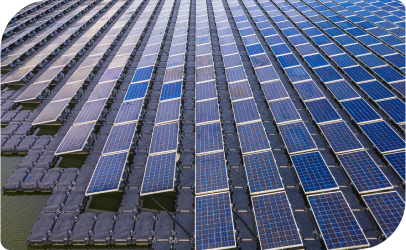Committed to eliminating plastic waste, Braskem develops next-generation technology for advanced recycling

To reinforce its global commitment to sustainable development, especially its targets for eliminating plastic waste and combating climate change, Braskem S.A. (B3: BRKM3, BRKM5 and BRKM6; NYSE: BAK; LATIBEX: XBRK) ("Braskem"), the largest polyolefins producer in the Americas, as well as a market leader and pioneer producer of biopolymers on an industrial scale, announces that it has developed a next-generation technology for addressing plastic waste. The process, which uses a proprietary catalyst and incorporates efficient heat management, reduces the need for external energy sources. This results in a significant reduction in CO2e emissions compared to the traditional advanced recycling technologies.
According to Jan Kalfus, Global Bioprocess Catalysis & Circularity Manager at Braskem, the idea of this unique technology first emerged in early 2020, in the United States, but the technology's use will not be limited to the country. "The launch will be global as opportunities emerge. We want to develop a new way to drive advanced recycling, which is a process that transforms plastic waste into molecular building blocks such as propylene and ethylene that are used for making new, circular plastics and chemical products, thereby reducing plastic waste and the need for fossil fuels worldwide," he explained.
The project has demonstrated high production yields for valuable intermediates, such as aromatics and monomers, which can be used to remake circular plastics. "Today, the technology is being further developed and we are scaling up our reactor that will provide important data to support our future expansion. The pilot project is planned for 2025 and the technology should become available at scale by 2030," said Kalfus.
In Braskem's new process, the catalyst acts as a scissor that breaks plastic waste down into its molecular building blocks, which are then used for making the plastics used in so many items we find in our daily lives. These molecular building blocks, also known as monomers, can be used directly in current plastics production facilities to manufacture new plastics using recycled materials. The product resulting from this process is equivalent to conventional plastic and fully recyclable.
"For now, the main benefits of this new technology are the capacity to efficiently make circular plastics from plastic waste and reduced CO2e emissions due to the lower energy requirements. In the long term, this new technology could come to replace techniques currently used in the industry for making plastics, providing a circular future for the next generation of plastics engineers and society," he concluded.
PATH TO TARGETS
Actions like this are part of Braskem's efforts to eliminate plastic waste. The company plans to expand its product portfolio to include, by 2025, 300,000 tons of thermoplastic resins and chemical products with recycled content, and by 2030, 1 million tons of these products. Also, by 2030, it aims to eliminate 1.5 million tons of plastic waste from being sent to incineration, landfills, or disposal in the environment. On the climate change front, the targets are to reduce direct greenhouse gas emissions by 15% by 2030 and to reach carbon neutrality by 2050.
Related News
Press Releases
More news
From Air to Plastics: Norsk e-Fuel and Braskem Partner to turn Captured Carbon into Long-Lasting Products

With Braskem's I'm greenTM bio-based Polyethylene, Balsam Hill Made the World's First Plant-Based Plastic Christmas Trees

Braskem Unveils Bio-based Product Innovations at K 2025

Braskem reinforces its leadership in sustainable solutions at K Fair 2025

Braskem Unveils Updated Life Cycle Assessments for I'm greenTM bio-based Portfolio, Reinforcing Commitment to Sustainability


 Braskem Global
Braskem Global
 Braskem Idesa
Braskem Idesa
 Braskem USA
Braskem USA
 Braskem Europe
Braskem Europe












